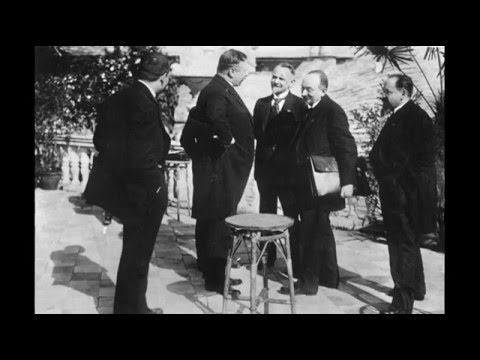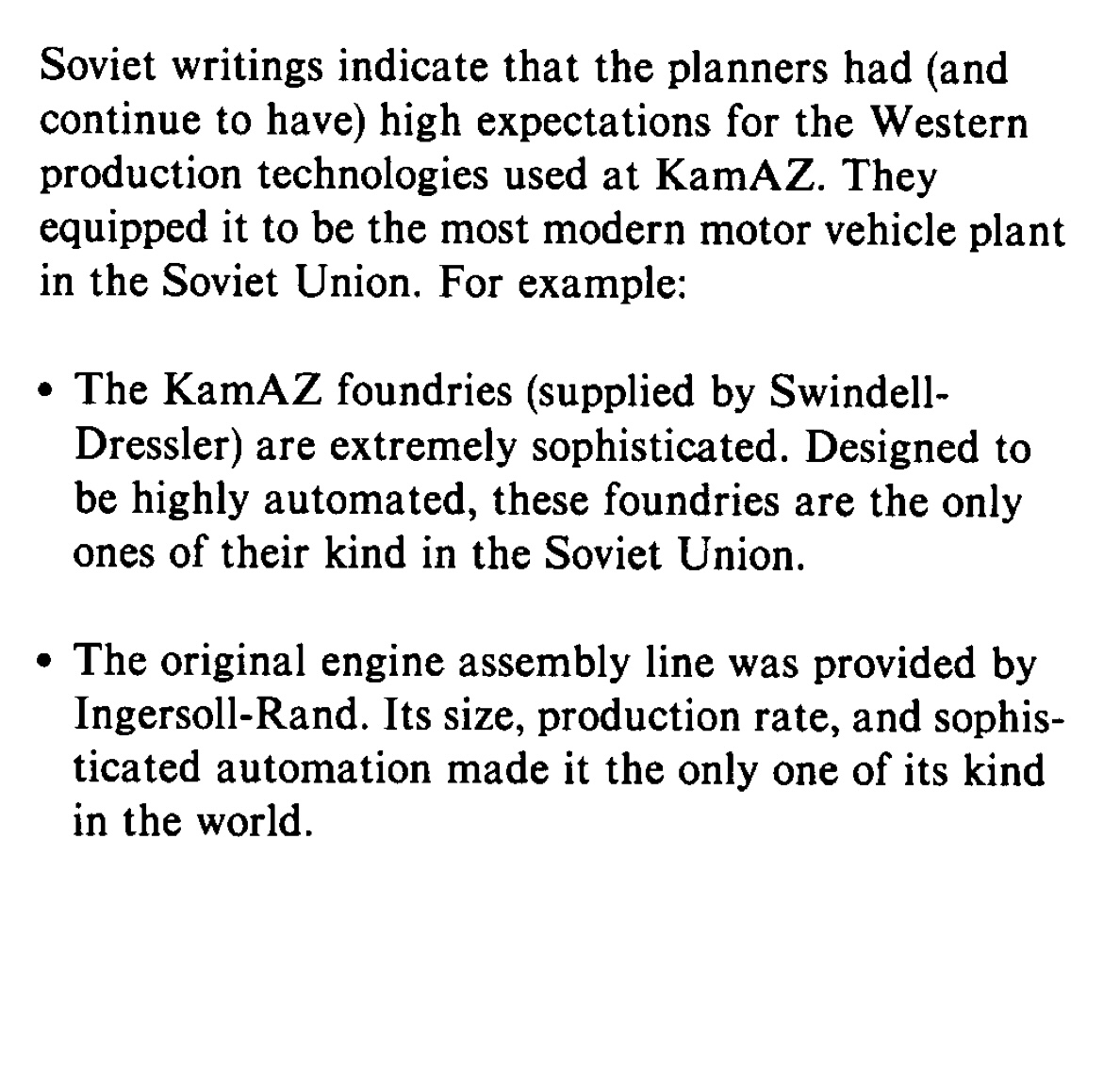
Counterpoint: Western unity is a myth and might have never existed in the first place. For example, during the Cold War, West Germany was not only the major trade partner of the USSR, but also a proxy for the Soviet technological import bypassing the American trade restrictions🧵
https://twitter.com/Kasparov63/status/1536169099377639426
That's not some kind of secret knowledge. The narrative presented below will be fully based on a single book. "N. Krotov. The history of Soviet and Russian Foreign Banks, Volume 1". It is a collection of memories of Soviet bank officials commissioned by the Russian VTB Bank (ВТБ) 

Consider the memories of S.M. Bochkarev who was the General Commissioner of the Ost-West Handelsbank in 1980-1985, Instructor of the Economic Department of the Central Committee of the Soviet Communist Party in 1987-1988, and the Chairman of the Ost-West Handelsbank in 1988-1993 

In early 1920s Soviet Russia needed to break through the economic blockade. In 1922 it managed to establish diplomatic contacts with Germany. Germany relinquished claims for compensation for confiscated German property on condition that other foreigners get no compensation either 

In 1922-1941 Soviet German transactions went through the Garkrebo (Garantie und Kredit Bank Fur den Osten) which belonged to the Soviet Gosbank. Hitler's rise to power didn't stop the trade, but the German attack on the USSR in 1941 did. The bank was closed, assets were arrested
With the defeat of Nazis in 1945, the Garkrebo was restored and its activities resumed. It was initially the only Soviet Bank in the Soviet zone of occupation. But whereas in the 1922-1941 Berlin-based Garkrebo could freely operate all over Germany, now it was limited by the East
Since late 1960s commercial contacts between the USSR and Germany started growing again. Activities of Soviet-founded Sovag were resumed, new companies such as Rusalmaz, Plodimex and most importantly the Transnautic were opened, too
Via the Transnautic subsidiary, the Hamburg-based "Transglob", Soviets bypassed American restrictions on exporting computers to the USSR. They were imported to Germany and installed in Hamburg. Using these computers Transglob regulated Soviet container shipping all over the world 

Soviet proxy in Germany importing the computers was an issue of big bureaucratic battles in the late 1980s. Commerce Department argued that the US security was not compromised while the Defense Department objected. See a Chicago Tribune article from 1987 chicagotribune.com/news/ct-xpm-19… 

Overall, the degree of autarky and self-sufficiency of the USSR is hugely exaggerated in the public discourse. It was never autarkic or self-sufficient, being very much dependent upon the technological import. And yet, the sources of this import varied over the time
Stalin commissioned the Detroit-based Albert Kahn Associates to manage construction of over 500 key Soviet industrial objects. Most suppliers and contractors were American. Germany was important largely as a supplier of machine tools and electric equipment
https://twitter.com/kamilkazani/status/1505247886908424195
After the WWII the technological export from the US to the USSR was not shut down completely but rather somewhat restricted and outshunned by the growing export from the Western Europe (and partially Japan). Let's illustrate this on example of Kamaz truck plant 

Following the general Soviet trend on hyper concentration and hyper centralisation of industry (and well, everything) Kamaz was not build as a truck plant. It was built as *the* truck plant covering almost all of the USSR domestic consumption and export needs 

Kamaz was advertised as a great socialist industrial project (стройка социализма). And yet, according to a declassified CIA report the project heavily relied on Western equipment: from the US (504 million usd) and from Western Europe + Japan (757 million) cia.gov/readingroom/do… 



The Kamaz production was quite sophisticated and very much import dependent. Foundries were designed by Swindell-Dressler, engine assembly line by the Ingersoll-Rand. Most of the plant's operation were computer-controlled, for example the foundry - by the IBM 370 



American embargo of 1981 did indeed create some disruptions and delays. But it didn't stop the production. Why? Soviets managed to acquire the equipment and spare part elsewhere, usually in Western Europe and Japan 

I find this report fascinating. Let's summarise its conclusions. There is a huge plant that is a major chokepoint in the Soviet supply and industrial chains as virtually the only truck producer in the USSR. It uses cutting edge foreign technologies, equipment and components
Despite the Cold War, the USSR manages to buy much of equipment from its archival, the USA. However, Western Europe and Japan supplied much more of it. When the US imposed its embargo in 1981, the USSR managed to successfully bypass it, largely via European suppliers and proxies
Cutting all technological import from the West must be a priority for undermining Russian military efforts. That includes not only blocking the import of new equipment & maintenance of supplied one, but also disconnecting the Western (=German) software in its military industry
End of thread
PS Memoires of officials of the Soviet foreign banks can be found here (in Russian). It's a great primary source not only for the Soviet/Russian economy but also for its business & administrative culture fa.ru/org/div/museum…
• • •
Missing some Tweet in this thread? You can try to
force a refresh








